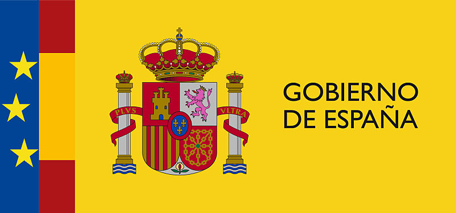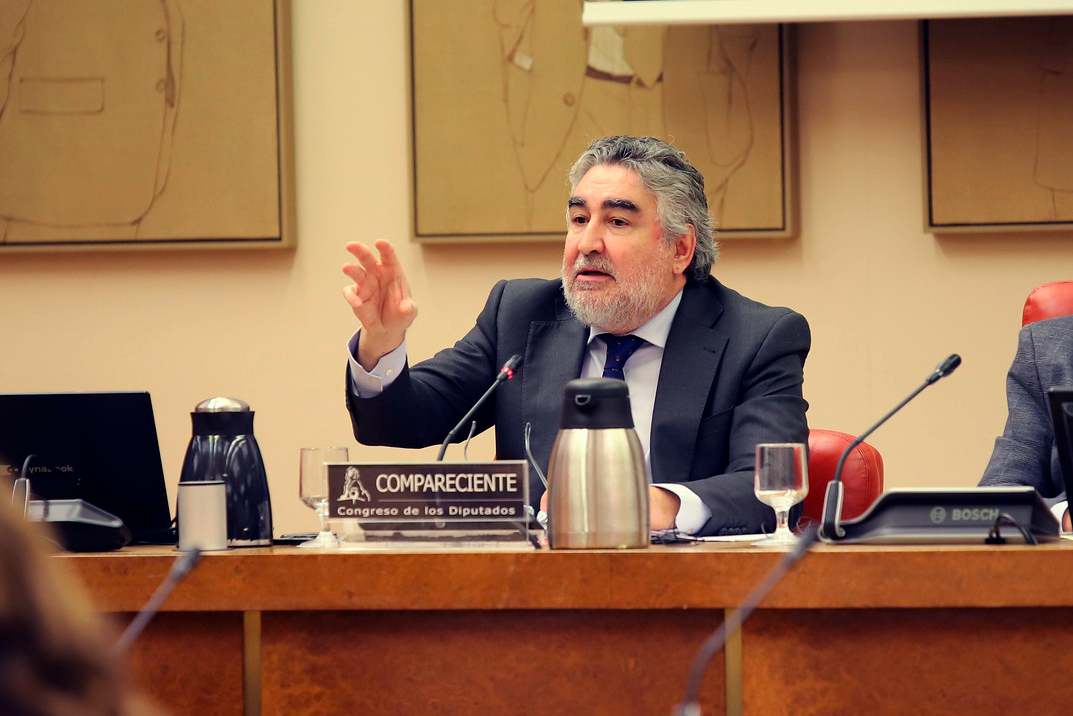Rodríguez Uribes: “The Government has placed sport at the center of political action, allocating more than 2.1 billion euros to its development since 2018”
-
The president of the Higher Sports Council (CSD), José Manuel Rodríguez Uribes, presented this Tuesday in the Congress of Deputies the balance of management of the cycle of greatest public investment in the history of sport in Spain.
-
Since 2018, the CSD has allocated more than 2.1 billion euros to the development of this sector, which in the words of Rodríguez Uribes demonstrates that “sport is a priority in the country project of this Government”.
Madrid, November 11, 2025.- The President of the Higher Sports Council (CSD), José Manuel Rodríguez Uribes, appeared on Tuesday before the Education, Vocational Training and Sports Committee of the Congress of Deputies to present the general lines of action of the body and offer the balance of management in which is being the cycle of greatest public investment in the history of Spanish sport.
Since 2018, the Government of Spain has allocated more than 2.1 billion euros to the development of the sports ecosystem, which in the words of Rodríguez Uribes is an indication that “sport is a priority in the country project of this Government”. “Sport has been at the centre of political action,” said Rodríguez Uribes, detailing the extraordinary financial resources made available to this sector.
This year the budget of the CSD amounts to 321 million euros, which represents 55.8% more than in 2018.These expansive budgets are impacting in a positive way on the development of the federal model, which has seen government aid multiplied, in recognition of the role that national teams and athletes play in the international projection and in the good reputation of our country.
According to Rodríguez Uribes, the Spanish sports federations “have received more than 700 million euros in aid in the last seven years, channeled through public calls and strategic programs”, with the aim of modernizing their structures and improving Olympic and paralympic preparation.
Thus, in 2024 the CSD supported its activity with the granting of 153 million euros in grants, more than double what these entities received in 2018 (73 million).
This investment is the starting point for the next major international challenges of Spanish sport: the Olympic and Paralympic Winter Games of Milan-Cortina d’Ampezzo 2026 and the Olympic and Paralympic Summer Games of Los Angeles 2028.
The sportsman, at the heart of public policies
With this in mind, José Manuel Rodríguez Uribes commented that the CSD Team Spain program, “aimed at boosting the performance of our country’s athletes”, will become the “parent project” of this cycle, in which, in addition, the High Level Athlete Care Program (PROAD) will continue to be strengthened in order to promote sports and academic development through the dual career.
“Since its creation fifteen years ago, PROAD has facilitated the insertion of 1,700 athletes into the labor market, demonstrating that sporting excellence and preparation for the future can advance in parallel. Training today’s athletes means investing in tomorrow’s talent and leadership,” said Rodríguez Uribes.
The protection of sportspeople is also among the priority axes of the Higher Sports Council, which this year will finance the social security contributions of the 745 high-level sportspeople who have requested this aid, at a cost of 1,740,000 euros. Since 2019, the number of sports beneficiaries exceeds 3,000.
To them, the ambitious process of modernization of the High Performance Centers of Madrid, León and Sierra Nevada, all of which are state-owned, is fundamentally aimed. Since 2018, the CSD has invested 120 million euros from its regular budget in the maintenance and modernization of these facilities, to which is added an extraordinary endowment of 27.7 million euros from the NextGenerationEU funds for improvements in digitalization, accessibility and sustainability.
The actions on sports infrastructures have spread, in any case, throughout the territory.
CSD’s support to the Autonomous Communities and Cities is expressed conclusively in the distribution among all of them of 113.8 of the 300 million euros of Component 26 of the Recovery, Transformation and Resilience Plan. This has allowed, among other objectives, to expand social rights, promote physical activity in rural areas and promote sustainable sports tourism.
“The territory must be an integrative space, in which the rights of citizens are adequately addressed. And sport is one of them,” said José Manuel Rodríguez Uribes.
Equality, inclusion and good governance
The president of the CSD has highlighted the progress made in equality and inclusion, two of the strategic axes of public sports policies in this period.
Since 2018, the CSD has invested 12.6 million euros in Women and Sport programs and has allocated 39.5 million euros to the development of women's football.
This determined commitment to equal opportunities is reflected in the increase in women’s licenses, which for the first time are over one million; and in the growing presence of women on the boards of directors of Spanish sports federations, where they already have 40% representativeness.
In the field of inclusion and recognition of the sport practiced by people with disabilities, the decision to equalize the medal prizes between Olympic and Paralympic athletes stands out.
The CSD, which cofinances these awards together with the Spanish Olympic and Paralympic Committees, “will continue to work on this path of full equality”, announced Rodríguez Uribes, who also thanked the institutional and interadministrative cooperation for the elaboration of the Inclusive Sport Master Plan 2025-2028, approved unanimously at the last Sectorial Conference.
Rodríguez Uribes has also defended the consolidation of an “effective and transparent” management model, based on public ethics and good governance, articulated through the Code of Good Governance of federations and professional leagues.
Precisely, from this loyal collaboration with the main agents of the Spanish sports ecosystem has been born the U League, a new basketball competition promoted together with the ACB and the Spanish Basketball Federation (FEB), to which the CSD will allocate 15 million euros in its first three seasons.
It is not the only competition that has the financial backing of the CSD, which in 2025 has also supported the organization of the Spanish Grand Prix of Formula 1, the Canary Islands Rally, the European MTB Cycling Championship and the World Mountain Championship and Trail Running of Canfranc-Pyrenees, among others.
In addition, the agency is already actively working on the preparation of the 2030 Football World Cup, together with Portugal and Morocco, and the 2031 Ryder Golf Cup.
In that sense, the president of the CSD has recalled that sport is also “an industry, which creates employment and wealth”. Currently, sport employs 255,000 people, almost 20% more than in 2018, representing 3.3% of the national GDP.
In addition, sports tourism exceeded 3 billion euros of associated spending in 2024, consolidating Spain as a global reference.
The president of the CSD has also highlighted the international leadership of Spain in the fight against hate speech and violence in sport, through the chairmanship of the working group created within the framework of the European Commission.
The road map
For the rest of the legislature, the president of the CSD has announced an ambitious roadmap, focused on strengthening sport as a pillar of the welfare state.
“Sport is one of the most recognisable signs of identity in a democratic and pluralistic society such as Spain. Our purpose is to continue working alongside the sector and for the benefit of athletes, because sport is a common commitment and a tool to build a better country”, concluded Rodríguez Uribes.
- Images for editorial use: https://www.flickr.com/photos/149228308@N03/albums/72177720330239806/



